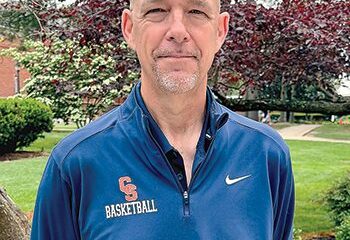Gov. Josh Shapiro’s administration announced this week that Pennsylvania is investing nearly $10 million to purchase development rights for 2,672 acres on 35 farms in 18 counties — protecting them from future residential or commercial development.
These joint investments by state and local government ensure that Pennsylvania farmers will have the prime-quality land they need to continue feeding families and supporting jobs and communities in the future, the governor’s adminstration said.
Since the Shapiro administration began, Pennsylvania has invested $125.2 million to preserve 415 new farms and 35,177 prime acres of farmland across the state.
“Preserving Pennsylvania farmland is an investment in the future of our economy and farm families,” said Agriculture Secretary Russell Redding. “When that land is lost to development, we lose one of our most valuable economic assets.”
More than 48,800 farms across Pennsylvania contribute $132.5 billion to our economy and support almost 600,000 jobs, making agriculture a key driver of Pennsylvania’s economy.
To continue Pennsylvania’s national legacy as an agriculture leader, Shapiro’s 2025-26 budget proposes:
• An additional $13 million investment in the historic Ag Innovation Grant to help build the future of American agriculture right here in Pennsylvania.
• Investing $2 million to keep Pennsylvania’s new animal diagnostic laboratory in the western part of the state operational, providing critical testing services for farmers to ensure their livestock remain healthy and viable for continued farming operations.
• A $4 million funding increase to connect Pennsylvanians at risk of hunger with healthy, local food through the Pennsylvania Agricultural Surplus System.
• An additional $4 million funding increase to the State Food Purchase Program to provide emergency food assistance for low-income Pennsylvanians.
Pennsylvania continues to lead the nation in preserved farmland. Since 1988, Pennsylvania has protected 6,564 farms and 654,551 acres in 58 counties from future development, investing nearly $1.76 billion in state, county, and local funds.
Farms preserved at the State Agricultural Land Preservation Board meeting include:
• Luzerne County — total investment, $555,160, state only.
• Raymond H. and Corrine A. Barchik, 115-acre crop and livestock farm, Fairmount Township.
• Joseph A. Disabella Sr. and Deborah A. Disabella, 54-acre crop farm, Sugarloaf Township.
Bill to move DOE office to Pittsburgh introduced
U.S. Sen. Dave McCormick, R-Pittsburgh, and U.S. Sen. John Fetterman, D-Braddock, this week introduced S. 2044 — which would move the Department of Energy’s Office of Fossil Energy and Carbon Management to Pittsburgh.
“For far too long, federal agencies in Washington have been physically removed from the workers and industries they regulate,” McCormick said. “I’m proud to partner with Sen. Fetterman on this legislation to bring a critical Energy Department office to Pittsburgh near the heart of the Marcellus.”
“With its rich history of energy production, top-tier universities, and state-of-the-art manufacturing infrastructure, Pittsburgh is uniquely qualified to be the home of the Department of Energy’s Office of Fossil Energy and Carbon Management,” Fetterman said. “I’m proud to join Sen. McCormick to introduce legislation calling for this move while protecting the union way of life. FECM is an important agency that supports lower-carbon fuels like natural gas while addressing and lowering carbon emissions. Housing federal agencies in the communities they impact is a no brainer.”
Last year, McCormick proposed moving DOE operations to Pittsburgh to place agency officials closer to the industry they regulate and work with every day. Pennsylvania is the second largest producer of natural gas in America, with most of that production happening in western Pennsylvania.
The Department of Energy’s Office of Fossil Energy and Carbon Management (OFECM) is made up of about 750 federal employees — scientists, engineers, technicians and administrative staff. The Office is responsible for research, development, and demonstration on advanced power generation; power plant efficiency; carbon capture, utilization, and storage technologies; emission control technologies; and so much more. It is responsible for the technological solutions for the development of our unconventional oil and gas domestic resources and also manages the Nation’s Strategic Petroleum Reserve and Northeast Home Heating Oil Reserve.
The OFECM also manages the National Energy Technology Laboratory (NETL). This is the lead field center for research and program development. Through this laboratory there are nearly 700 federal sponsored projects that are conducted through private sector research partners.
The bill would require the Department of Energy to move the Office of Fossil Energy and Carbon Management (OFECM) within the DOE to Pittsburgh one year after passage. It would also require the Secretary of Energy to provide a report to Congress on employment changes and any impacts to collective bargaining rights.
The OFECM houses the National Energy Technology Laboratory (NETL), which is already based in Pittsburgh and does a significant amount of OFECM’s functional work. The impact on staffing would be minimal and provide more jobs to Pennsylvania while having a federal office housed in the Commonwealth.
Recommendations to help gun violence victims
The importance of supporting the basic needs of gun violence victims — including housing, transportation, food — and providing tailored supports for youth were some of the key findings released this week by the Pennsylvania Commission on Crime and Delinquency (PCCD), following a statewide needs assessment conducted at the request of PCCD Chair Lt. Gov. Austin Davis.
“The people closest to the pain should be closest to the power — and that’s exactly what this initiative is all about,” Davis said. “By gathering insights directly from survivors, families, and providers, these reports highlight critical gaps that too often stand in the way of individuals’ healing process after experiencing gun violence. We’re not just working to reduce gun violence; we’re ensuring that victims and the professionals who serve them receive the support they need and deserve.”
From Fall 2024 to Spring 2025, PCCD contracted with ICF to conduct a needs assessment to better understand resources available to support individuals exposed to or who have experienced gun violence.
Statewide needs assessment takeaways
Key findings:
• Meeting basic needs is critical: Housing, transportation, and food insecurity remain major barriers. Survivors often can’t access support services when their basic survival is at stake.
• Local trust matters: Individuals affected by gun violence prefer hyper-local, culturally relevant providers who understand their communities. Many learn about services through friends, family or trusted community leaders — not official channels.
• Youth need tailored supports: Youth exposed to violence feel isolated and misunderstood. They emphasized the need for connection through food, creative outlets, and social media, as well as education on gun safety and conflict resolution.
• Long-term care is lacking: Many survivors feel overwhelmed by offers of services immediately after a violent event but struggle to find help when they’re ready. Services must be available beyond the crisis period.
Recommendations:
• Develop hyper-local communications to build awareness and trust in services.
• Provide trauma-informed training to service providers and journalists.
• Expand gun safety education and access to secure firearms storage devices.
• Make services available long term, beyond the initial crisis period.
Reach Bill O’Boyle at 570-991-6118 or on Twitter @TLBillOBoyle.











































































